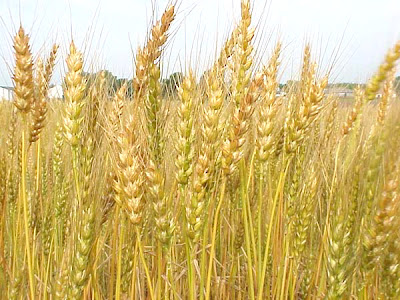NEW DELHI: Ahead of elections in Punjab and Uttar Pradesh, the government on Tuesday announced an increase of up to 39% in the support price for farm goods in what is being billed as a Diwali gift for farmers. But the move has raised fears of a further spike in food inflation, which crossed the 10% mark last week. While the smallest increase was in case of wheat, where the minimum support price has been increased by around 15%, the Cabinet Committee on Economic Affairs was far more liberal in case of oil seeds, gram and masur. The government acknowledged that the move had the potential to fan food inflation but chose to give higher priority to farmer interest.
Higher MSP of farm goods can bloat food subsidy bill
"We can't be completely blind to the fact that there is inflationary pressure. Just like the growth versus inflation debate, this is a difficult balancing act," law minister Salman Khurshid said on Tuesday after the government announced an increase of up to 39% in the support price for farm goods. Higher MSP also comes with the risk of bloating the food subsidy bill at a time when granaries are already overflowing with excess grain. Although Khurshid said the government chose to go ahead with the recommendations of theCommission for Agricultural Costs and Prices (CACP), sources said the agency had suggested that the MSP for wheat be enhanced to Rs 1,350 a quintal instead and also get states such as Punjab to do away with the 5% duty. But CCEA chose to ignore the reform suggested by CACP and stuck to the minimum increase that was suggested.
In case of other commodities, however, the Cabinet has chosen to accept the MSP suggested by CACP. "We imported edible oil worth Rs 29,000 crore last year. So, it's time that we incentivized domestic cultivation and reduced import dependence," said an official. There are, however, fears that with prices of mustard and sunflower oil increasing due to higher MSP, palm oil prices would also go up in a similar fashion and put further pressure on households. Officials acknowledged that there was a possibility given that palm oil prices - that went up by around 45% last year - have only decreased marginally.
In recent months, the government has grappled with high food prices but has been largely ineffective in taming it. The latest round could put further pressure although UPA-2 seems to be taking cues from the 2009 general elections when a farm loan waiver on the eve of polls helped it secure a better mandate.


No comments:
Post a Comment